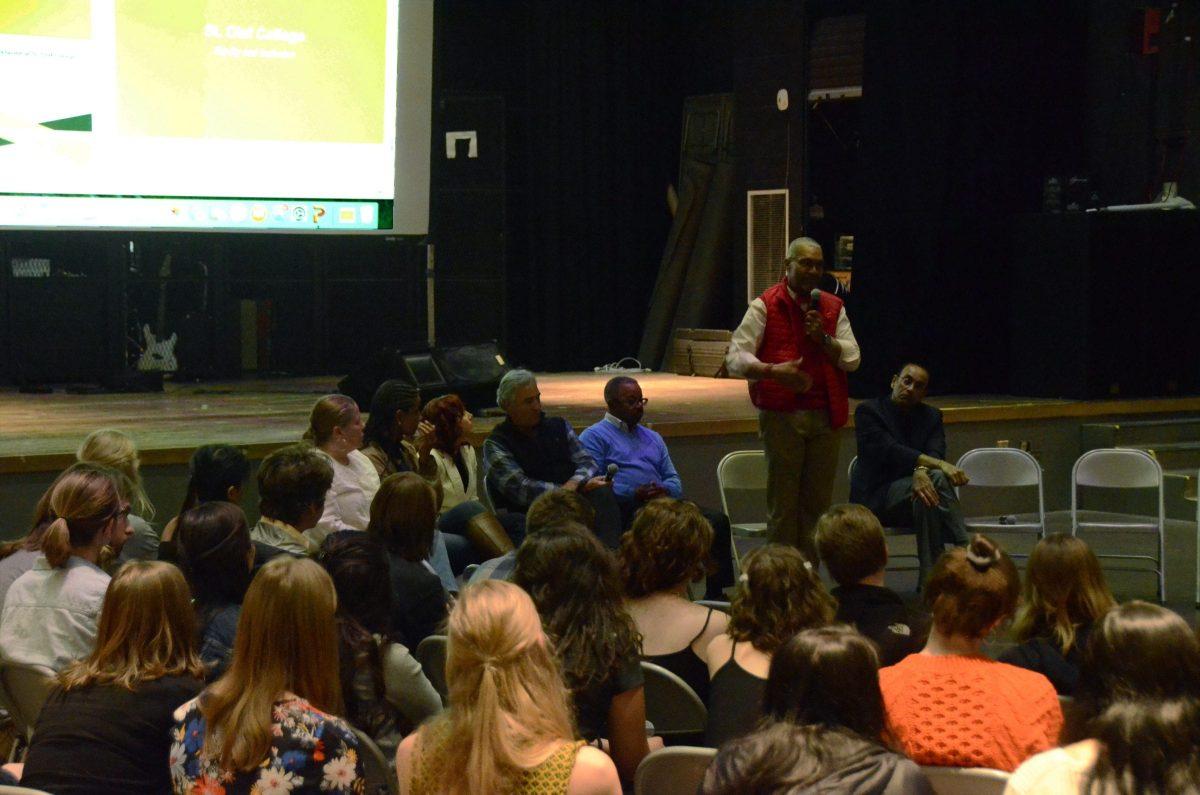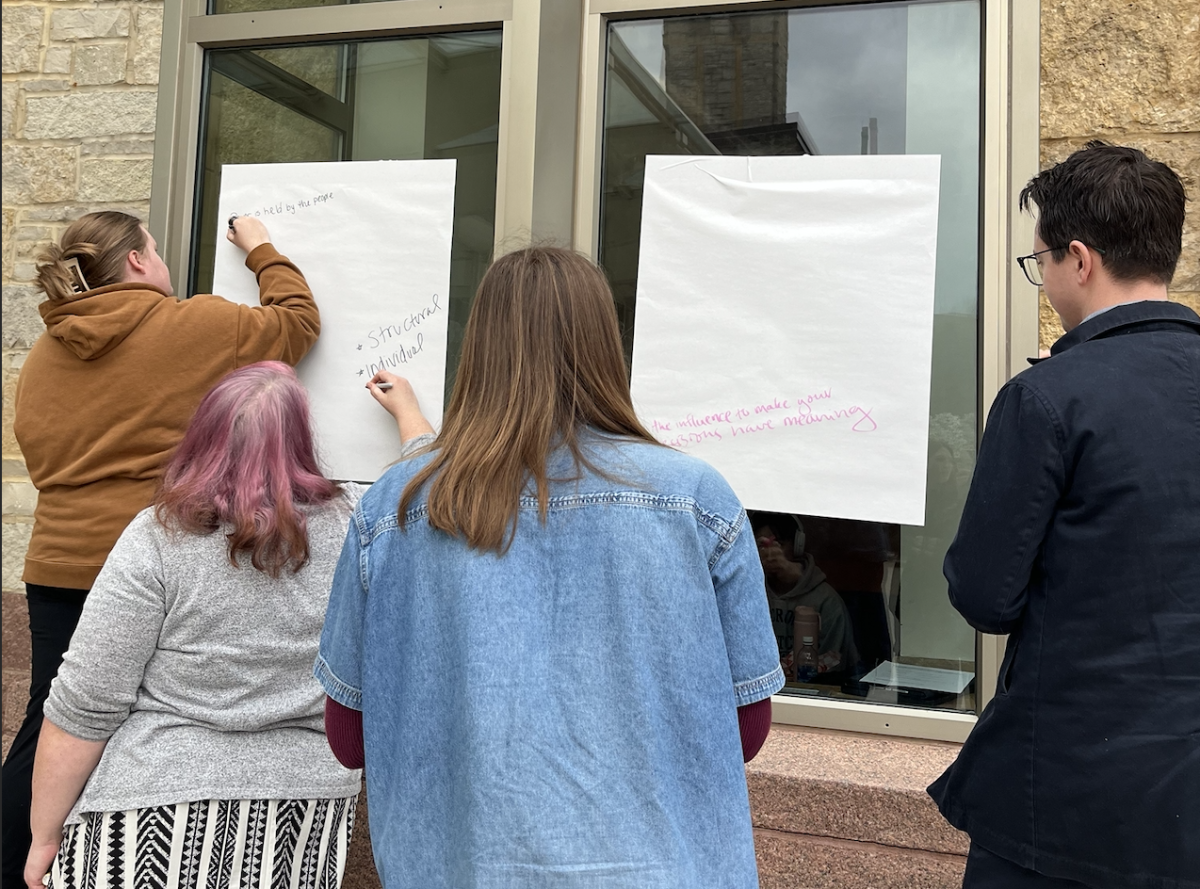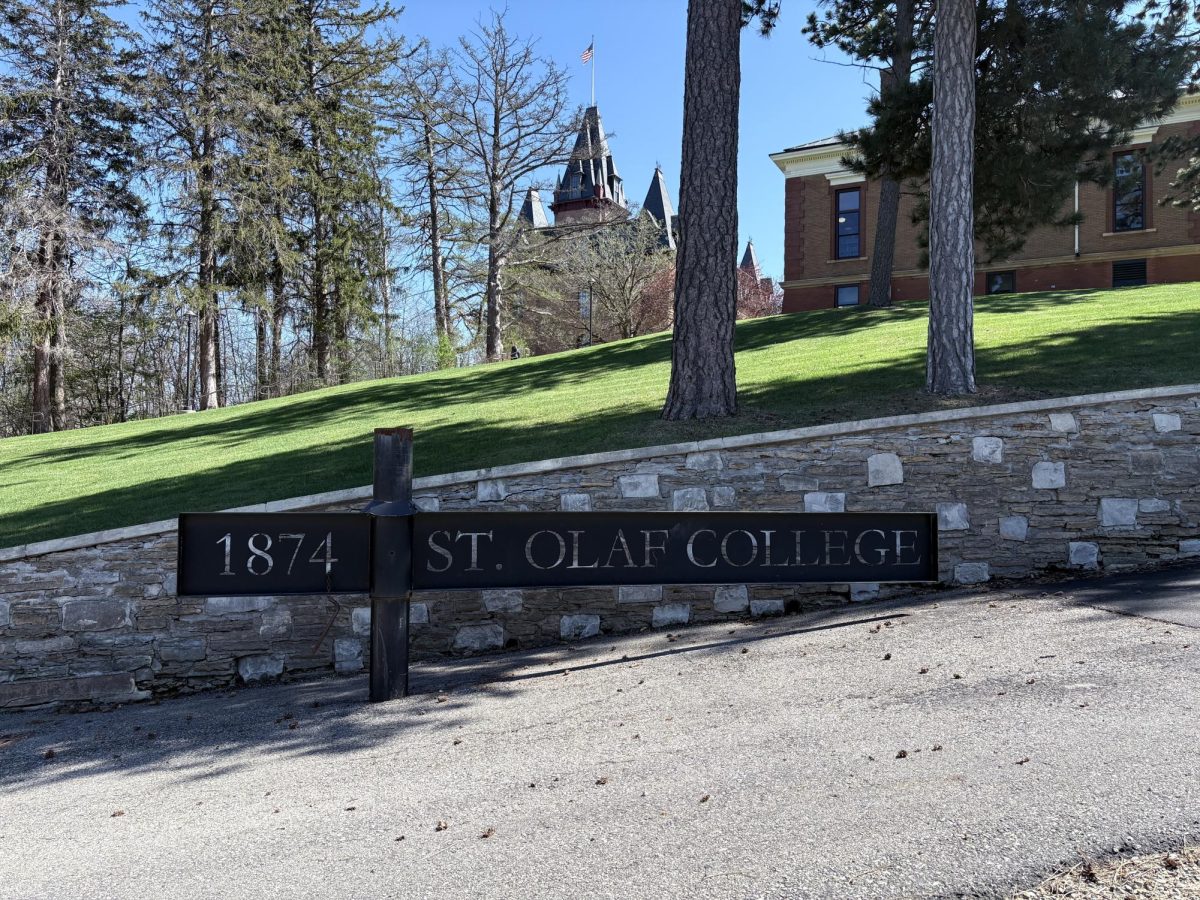On May 1 the Working Group on Equity and Inclusion released their final report via email to President David Anderson ’74, the Board of Regents and the St. Olaf Community. In the email, signed by both the Working Group chairs and St. Olaf Regents Glenn Taylor ’73 and Phil Milne ’81, they stressed that the report is not a conclusive answer to the problems facing St. Olaf, but hoped it would provide valuable recommendations.
“This report is not intended to be the conclusive answer to racism, equity, and inclusion, but represents our best thinking given the current context,” the email read. “The work of equity and inclusion is ever-changing, and our recommendations suggest an approach that will allow St. Olaf to adapt and engage in new ideas, approaches, and mechanisms for our community’s work today and into the future.”
The Working Group held a town hall prior to the release of the report on Thursday, April 26, which provided campus with an update on their work since they were formed by Anderson on September 25. The town hall also provided a space for student, staff and faculty feedback in light of their May 1 deadline.
Rev. Dr. Jamie Washington moderated the event, with Chairs Glenn and Taylor present, as well as working Group members Mary Barbosa-Jerez, Head of Collections Development, Pastor Katie Fick, Vice President Bruce King, Macalester College’s Vice President for Student Affairs Donna Lee and professor of religion Anantanand Rambachan.
While introducing himself Taylor shared the impact the working group has had on his perception of the college.
“Doing the work of the Working Group I have learned more about the college than probably any other way. It has been an incredible experience,” Taylor said.
Milne shared similar sentiments after he introduced himself.
“It’s really been an incredible thing to be a part of this working group and to tackle these issues,” Milne said. “I think we all learned a tremendous amount over the course of these last months. So we really look forward to today and thank you for coming.”
After introductions Taylor led the screened presentation. He began by emphasizing St. Olaf’s commitment to having a welcoming and inclusive community, but he believes St. Olaf can do better.
“St. Olaf has a mission to be an inclusive and welcoming space, but that hasn’t worked for everybody on the Hill,” Taylor said. “Our job was to dig into why, what’s happening on the Hill and come forward with recommendations on how to resolve it.”
Taylor brought up how some of the problems can be tied to the rapid diversification of St. Olaf and the relationship with the longstanding and unchanging cultural norms.
“We weren’t prepared for the culture that needed to be changed for us to embrace that diversity … that creates unwelcome, creates outrage, when you’re being excluded,” Taylor said.
Taylor also described how when he was a student at St. Olaf, people of color made up about three percent of the College.
“Fast forward to today and it’s in the thirty two percent when you include international students,” Taylor said. “But the culture and the norms and festivities and all the things that go on are about the same. We think that needs to change.”
To create their recommendations for Anderson, The Working Group talked weekly over conference call and monthly on campus. They met with numerous groups, including The Collective For Change on the Hill, The Task Force on Institutional Racism, CMIE, The Economic Club as well as open forums with student groups and faculty. Though Taylor felt that they hadn’t met with everyone they wanted to, they felt positive about what they learned from those they did meet with.
The Working Group also sent out a survey, which according to Taylor had about a twenty percent response rate. Though they wished to have more response, Taylor believes they were able to get an idea of what the campus climate was like.
“People were very comfortable talking about difference … [But], interestingly political views across faculty, students, staff was where students were most uncomfortable discussing differences,” Taylor said.
One of the major preliminary thoughts the Working Group shared was the need for a permanent council.
“We did all of these things but not enough of them. Which is why our principal recommendation is that there has to be a permanent working group that continues to examine, dig, understand and help change what is going on at the college,” Taylor said. “We were together for six or seven months and this just isn’t enough time to do the depth of the work that we feel needed to be done. In fact now I’m at the point where I think I can go after it, but it took this long to get there.”
Another important point of the preliminary thoughts was the need for students, faculty and staff to learn to deal with difference.
“I would say including politically. We found there is a minority group of conservatives on campus and some of them feel oppressed. It might be a different kind of oppression than racism certainly is. But we are not welcome for all groups that I think we need to be,” Taylor said.
After the presentation students asked questions, one in particular focusing on statements the Working Group made in regards to conservative voices on campus, specifically the recent Campus Reform articles written by campus conservatives. Working Group member Barbosa-Jerez responded to some of these concerns, focusing on the need for improvement in communication on campus.
“If we want to really try and change our culture that not only do we have to communicate as a culture that particular types of speech are not part of our values, but we have to bring those folks along with us into the change,” Barbosa-Jerez said. “We do want to listen when there is an attempt at conversation but I think that we [the Working Group] are all in agreement that hate speech, racism or bigoted action are not welcome in the community that we want to create.”
After the report was released on May 1, Anderson sent a response email with his plans moving forward.
“After the comment period closes on May 15 and I have completed my review of the report and consulted with others, I will be in touch again with information about the next steps we will take in response to the report’s recommendations,” Anderson said.



